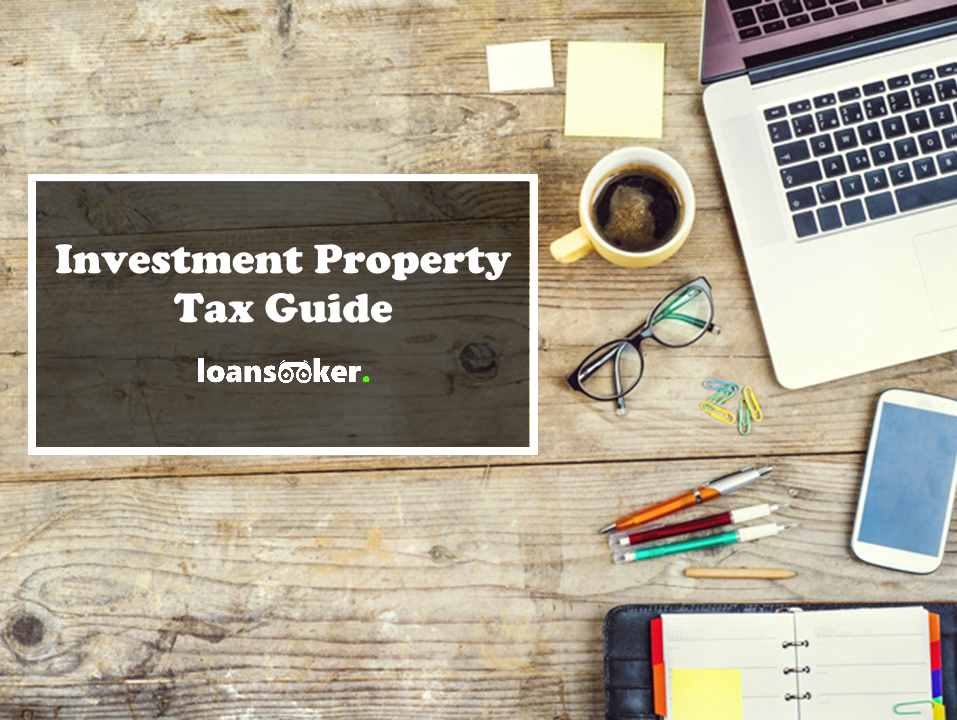Knowing a little about Investment Property Tax can save you alot?
Chat to Your Loanseeker Personal Broker to find out how you can save
Sometimes its easy to ignore Investment Property Tax Implications. But getting expert advice in the beginning can save you alot over the course of your investing career. Loanseeker’s brokers are trained to be able to help you maximise your profits from investing However alothough we know alot we still recommend visiting a financial advisor or talking to your accountatnt about your personal situation . Chat to your Loanseeker Personal broker Today!
- Loanseeker Personal Brokers are fully trained and accredited to ASIC standards
- Let us guide you through the tax maze

Investment Property Tax Guide
Capital Gains Tax (CGT)
Capital gains tax is based on the difference between the selling price and the purchase price, which can include the sum paid for the property plus legal fees, stamp duty and other upfront costs as well as the value of any capital improvements (renovations) completed by you.
CGT only applies to properties purchased after September 1985. For properties purchased after October 1999, a discount of up to 50% may be available on the capital gain calculated for tax purposes (eligibility is dependent on the ownership structure of the investment- see your tax accountant for more information).
When it comes to calculating capital gains tax, the Tax Office will regard the date you entered the contract to buy the property as the date of purchase – not the settlement date. Check the calendar before you sell, as the discount only applies if you have owned the property for a minimum of 12 months. Capital gains tax can be complex, so be sure to get good advice from your accountant when selling your investment.
Depreciation
Two main types of depreciation can be claimed. The first applies to fittings and fixtures like stoves, hot water heaters, light fittings and carpets. The second relates to depreciation of the building itself. If your property was constructed between 1985 and 1987, the building cost can be depreciated by 4% annually.
Those built after 1987 can be depreciated at 2.5% each year. Have a look at www.ato.gov.au for a list of rates and effective life of depreciable items.
Depreciation is an area where it pays to get professional assistance. A quantity surveyor can inspect your rental property and draft a complete depreciation schedule that ensures you are neither missing out on depreciation deductions nor overstating your claim (which could result in tax penalties). Trying to estimate your own depreciation charge could leave you facing tax penalties if you get the figures wrong.
Tax Deductions
As a landlord you can normally claim a tax deduction for a wide range of the expenses related to your rental property including interest on the loan. It should be noted that these expenses can usually only be claimed if the property is tenanted or available for rent.
Your tax adviser can give you a clear picture of what you can claim for your personal circumstances. Though in general the following expenses can normally be claimed on tax:
- Advertising for tenants and property management fees.
- Loan interest and ongoing loan fees.
- Council rates, land tax and strata fees.
- Building depreciation plus depreciation of fittings and fixtures like stoves, carpets and hot water heaters.
- Repairs, maintenance, pest control and gardening.
- Building and landlord insurance.
- Stationery, phone costs and any travel to inspect the property.
- Accounting or bookkeeping fees.
The above is not a full list of what you can claim. Always get proper advice from a tax expert before putting in your return.
Keep up with the Latest Investment Property Tax News in The Loanseeker Blog
1. A common mistake is to claim initial repairs or capital improvements as an immediate deduction.
Initial repairs to rectify damage, defects or deterioration that existed at the time of purchasing a property are generally considered capital in nature and not deductible, even if conducted to make the property suitable for renting.
A better approach could be to claim depreciation on this expenditure as a capital works deduction over 40 years.
2. Prepay interest
If you are expecting that you will have a lower income next year (due to factors such as maternity leave or redundancy), we suggest not prepaying interest for up to 12 months in advance before year end on your rental property, thereby reduce your higher income.
3. Depreciation schedule
If your investment property was built after 18 July 1985 Adrian recommends organising a depreciation schedule from a quantity surveyor.
You should be able to recoup their fee in your first tax return as deductions can be in the thousands each year.
4. Travel to see your property
What about claiming trips to see your investment? The old wives’ tale of claiming two trips per year is not true
You can claim as many trips as you like so long as the purpose of the trip is to genuinely inspect the property and you don’t tag a family holiday onto it.
5. PAYG Withholding Variation
If you’re negatively gearing a property and have struggled with cash flow in the last year, it may be worth considering a mini-tax return” called a PAYG Withholding Variation Application, and have less tax taken out of each pay packet.
6. Foreign investment properties
The ATO is cracking down on taxpayers with properties overseas as they get more data each year from other tax jurisdictions
Make sure that you disclose any income that you receive as you are taxed on worldwide income as an Australian tax resident. These properties can be potentially ‘negatively geared’ as you can claim deductions such as interest, repairs, rates and insurance on these properties.
7. Keep your receipts
Each year the ATO makes contact with thousands of taxpayers who own rental properties to more closely inspect their claims.
The ATO motto is no receipt = no deduction so you could be costing yourself $$$ by not keeping those dockets!
There are many apps to help you with this. Check out the Apple or Google stores.
8. Minimise capital gains tax (CGT)
If you are trying to sell your property and cement a nice capital gain, consider exchanging contracts after 1 July to defer tax for another year.
And remember that if you hold your investment property for more than 12 months you reduce CGT by half!
This information is of a general nature only and does not constitute professional advice. You should always seek professional advice in relation to your particular circumstances before acting. Get a great accountant and their fees are tax deductible.


